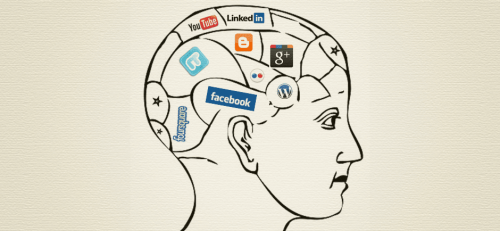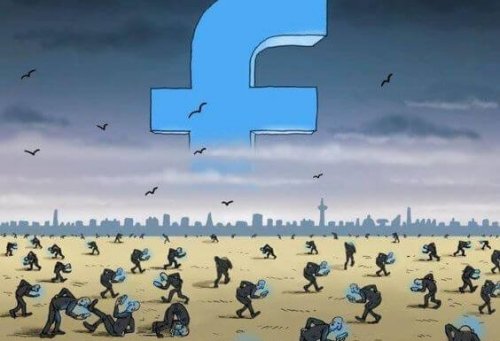We Need Less Texting and More Coffee Dates


Written and verified by the psychologist Raquel Aldana
Sure, it’s true that new technologies are helping our relationships survive. However, that doesn’t mean they don’t have any downsides. We’re starting to substitute texting with face to face meetings and that isn’t good. We need to engage in less texting and more coffee dates.
These days, friendships are based more on WhatsApp conversations than chats over coffee. As a result, our exchanges tend to be more superficial and less satisfying than those you have with a person face-to-face. Looking at another person’s eyes and getting a hug on a chilly day is a different experience entirely.
Hugs are important for good communication. Anyway, it shouldn’t be so difficult to make time for the people we love. If it is, maybe we need to rethink our priorities.
Taking care of yourself and taking care of the people you love shouldn’t be back burnered. The best conversations and the best moments don’t happen on WhatsApp. What truly makes us feel good as humans is seeing each other face-to-face.

Virtual social networks: Enemies of active listening and face-to-face contact
There aren’t many studies that analyze the impact of the use (or abuse) of social networks on our mental health. No one has really studied how social networks affect the creation of stable (and real) support networks. Nevertheless, what we see anecdotally is that we’ve stopped looking at each other in the eye when we communicate something important. Constant interruptions and multi-tasking is the norm. We’re losing our ability to be active listeners.
Trying to have an important conversation on WhatsApp means losing a lot of important information. We’re missing out on data or reflections that would help us read the problem more accurately. What’s more, this lack of information means that the support we can offer to our loved ones is relatively poor.
On social media, we get caught up in appearances and half-truths. People present as much of their reality to the world as they want, and that makes it hard to have quality relationships. We don’t see each other, so we don’t really know each other. We don’t know how to read our friends’ faces or understand what they’re going through.
This type of communication might be sincere, but it’ll always be incomplete. This is another reason why we should see each other more and text each other less. What’s more, this fact isn’t exactly exempt from the devastating cumulative effect. Little by little, we include these communication habits in our day-to-day lives. As a result, we start to perceive ourselves in a more distorted way.
What used to be another means of communication has turned us into slaves. We congratulate ourselves on answering immediately. Not doing so can have serious consequences. Someone might get angry or you can even get into a dull argument based on indignation and mistrust.

FOMO syndrome (Fear of missing out)
FOMO is a response to this need that we have developed of always being online. We don’t want to miss anything that’s happening on social media.
That means that other people’s lives become more interesting than our own lives. Consequently, even our real relationships become less interesting. This can be devastating for our state of mind because we stop taking care of our lives. All we want to do is fulfill this fictitious need to control our virtual environments.
This constant need to be connected and aware of what’s happening in the cloud is limiting when it comes to enjoying our time with other people. The sad reality is that smartphones are everywhere these days. That takes away quality and warmth from our interactions.
Challenge yourself to text less and make more coffee dates
We challenge you to set your phone aside the next time you’re with someone. Make an effort to make real contact. After all, as we said before, the best conversations don’t happen over WhatsApp. That’s why we have to see each other more and make sure that social networks aren’t our only form of contact. Think “less texting, more coffee dates.” At the end of the day, social networks are great for transmitting information, but not so useful for promoting mutual understanding.
Sure, it’s true that new technologies are helping our relationships survive. However, that doesn’t mean they don’t have any downsides. We’re starting to substitute texting with face to face meetings and that isn’t good. We need to engage in less texting and more coffee dates.
These days, friendships are based more on WhatsApp conversations than chats over coffee. As a result, our exchanges tend to be more superficial and less satisfying than those you have with a person face-to-face. Looking at another person’s eyes and getting a hug on a chilly day is a different experience entirely.
Hugs are important for good communication. Anyway, it shouldn’t be so difficult to make time for the people we love. If it is, maybe we need to rethink our priorities.
Taking care of yourself and taking care of the people you love shouldn’t be back burnered. The best conversations and the best moments don’t happen on WhatsApp. What truly makes us feel good as humans is seeing each other face-to-face.

Virtual social networks: Enemies of active listening and face-to-face contact
There aren’t many studies that analyze the impact of the use (or abuse) of social networks on our mental health. No one has really studied how social networks affect the creation of stable (and real) support networks. Nevertheless, what we see anecdotally is that we’ve stopped looking at each other in the eye when we communicate something important. Constant interruptions and multi-tasking is the norm. We’re losing our ability to be active listeners.
Trying to have an important conversation on WhatsApp means losing a lot of important information. We’re missing out on data or reflections that would help us read the problem more accurately. What’s more, this lack of information means that the support we can offer to our loved ones is relatively poor.
On social media, we get caught up in appearances and half-truths. People present as much of their reality to the world as they want, and that makes it hard to have quality relationships. We don’t see each other, so we don’t really know each other. We don’t know how to read our friends’ faces or understand what they’re going through.
This type of communication might be sincere, but it’ll always be incomplete. This is another reason why we should see each other more and text each other less. What’s more, this fact isn’t exactly exempt from the devastating cumulative effect. Little by little, we include these communication habits in our day-to-day lives. As a result, we start to perceive ourselves in a more distorted way.
What used to be another means of communication has turned us into slaves. We congratulate ourselves on answering immediately. Not doing so can have serious consequences. Someone might get angry or you can even get into a dull argument based on indignation and mistrust.

FOMO syndrome (Fear of missing out)
FOMO is a response to this need that we have developed of always being online. We don’t want to miss anything that’s happening on social media.
That means that other people’s lives become more interesting than our own lives. Consequently, even our real relationships become less interesting. This can be devastating for our state of mind because we stop taking care of our lives. All we want to do is fulfill this fictitious need to control our virtual environments.
This constant need to be connected and aware of what’s happening in the cloud is limiting when it comes to enjoying our time with other people. The sad reality is that smartphones are everywhere these days. That takes away quality and warmth from our interactions.
Challenge yourself to text less and make more coffee dates
We challenge you to set your phone aside the next time you’re with someone. Make an effort to make real contact. After all, as we said before, the best conversations don’t happen over WhatsApp. That’s why we have to see each other more and make sure that social networks aren’t our only form of contact. Think “less texting, more coffee dates.” At the end of the day, social networks are great for transmitting information, but not so useful for promoting mutual understanding.
This text is provided for informational purposes only and does not replace consultation with a professional. If in doubt, consult your specialist.







